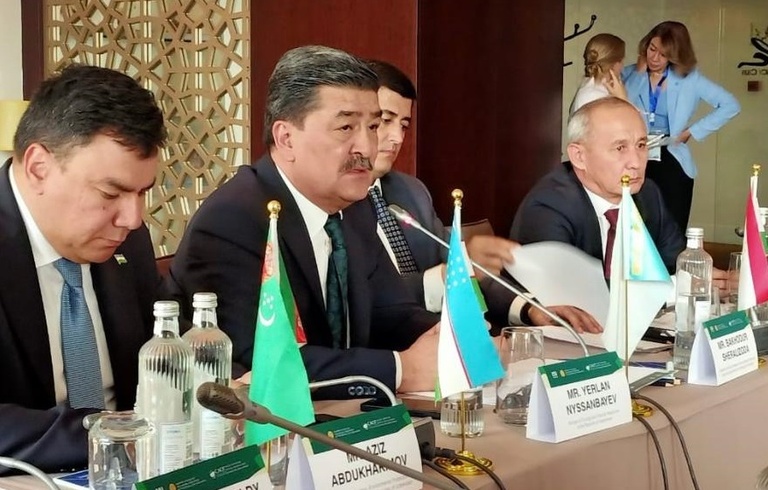
The event brought together head of ministers from the environmental agencies of Kazakhstan, Kyrgyzstan, Tajikistan, Turkmenistan, and Uzbekistan, along with international organizations such as the World Meteorological Organization (WMO), the UN Environment Programme (UNEP), UNESCO, and leading climate science institutions. The consultation focused on building a robust scientific foundation for regional climate decision-making and resilience planning.
A keynote presentation titled “Climate (and Water) Science and What This Means for the Region” was delivered by Professor Celeste Saulo, Secretary-General of the World Meteorological Organization (WMO). In her address, she emphasized the urgency of translating scientific knowledge into actionable strategies for water security and climate resilience. Professor Saulo highlighted the critical role of coordinated regional data systems and international partnerships in supporting evidence-based policymaking across Central Asia.
A central outcome of the session was the agreement to initiate the development of Country Profiles of Climate Risks for Central Asia. These tool will provide an integrated assessment of climate-related threats, sectoral vulnerabilities, and adaptation strategies tailored to the region’s needs. Priority sectors include water resources, energy systems, agriculture, public health, and investment security.
The Potsdam Institute for Climate Impact Research (PIK) was invited to take a lead technical role in developing this regional climate risk assessment. Representing PIK, project leader Dr. Iulii Didovets contributed to the panel discussion “Scientific Capacity and Gaps in the Region: Inventory and Evidence Base for RCS-2026,” where he emphasized the importance of integration of science into policy frameworks.
This effort builds on PIK’s ongoing work under the CLIMPACT project, which aims to enhance climate knowledge and resilience across Central Asia through collaborative research and capacity building. Within this framework, PIK is already supporting the development of high-resolution climate projections, assessments of climate impacts on water availability, crop yeilds, security and stakeholder dialogues to bridge science and policy.

Participants of the consultation also agreed on the roadmap for producing a Regional Climate Science Assessment by early 2026 and establishing a dedicated Scientific Working Group to guide research coordination across countries. UNESCO and WMO, alongside PIK and other partners, were invited to support this initiative.
With mounting pressures from glacier retreat, water scarcity, and rising temperatures, this collaborative effort underscores the urgency of science-based action. By supporting the creation of the Climate Risk Map and reinforcing regional cooperation, PIK’s engagement represents a vital step toward informed, shared, and resilient climate strategies in Central Asia.





